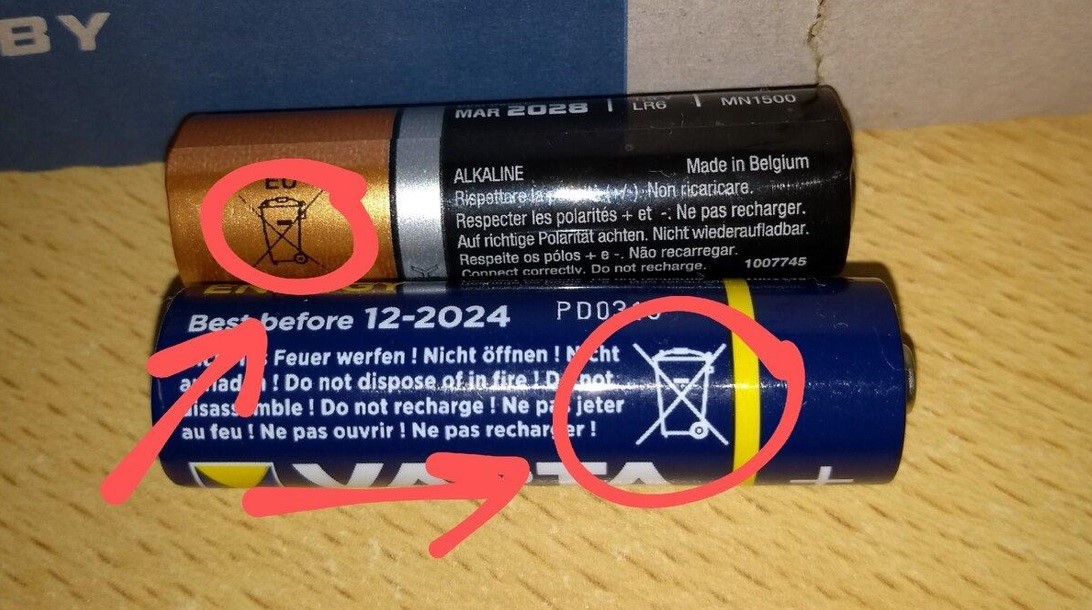March 22, 2022
Zharkyn Shadymanova, AUCA professor from the Department of Sociology, has been actively collecting used batteries at home for more than 7 years, and taught her relatives to do this. Because she knew how dangerous it was to just throw batteries in the trash with other waste, but she didn't know where to take them for recycling. The batteries accumulated and continued to lie at home in a box ...
Now such an opportunity has appeared in AUCA! As part of the #GreenAUCA project, the PPD Department specially purchased a container for collecting used batteries. Then, having collected a certain amount, we will hand them over for disposal to a specialized organization that has permission to do so.
If you also use batteries at home, at school or at work, DO NOT THROW them in the trash along with other waste, but bring them to room T14, PPD.
Why should we NOT throw away batteries?
On any battery you can see this sign:

It means: “DO NOT throw away, it must be handed over to a special recycling center”
And this sign is put on batteries not by chance!
��Batteries belong to the 2nd class of waste hazard, i.e. highly hazardous waste. They lead to serious violations of the ecological balance in the environment. The recovery period after contamination with such waste is at least 30 years.
One battery decomposes for more than 100 years.
��Toxic and dangerous chemical elements are used in batteries:
Getting into the trash can and then to the landfill, the metal case of the battery is destroyed by corrosion, heavy and dangerous metals from it fall into the soil and groundwater, into rivers and lakes, and into drinking water. For example, mercury, one of the most dangerous and toxic metals, accumulates in the tissues of living organisms and can enter the human body not only with water, but also when eating foods made from poisoned plants or animals.
Just one battery poisons:
Now remember how many batteries do you use per year? And what if we count all Kyrgyz citizens? There are no “trifles” in ecology…
��Therefore, even ONE unused battery can change the situation for the better in the place where we live – in Bishkek and Kyrgyzstan! Just start with yourself and your family, as our professor Zharkyn Shadymanova did.